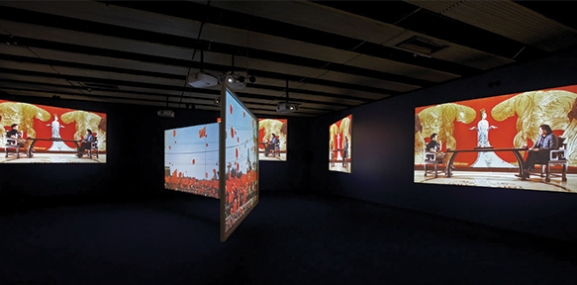Isaac Julien in Netherlander exhibition
Three of the most important names in Expaded Cinema, including Isaac Julien, currently showing at SESC Pompeia, will be in exhibition from 9.28 with Expanded Cinema: Isaac Julien, Fiona Tan, Yang Fudong, at EYE, Amsterdam, Netherlands.
The exhibition brings together three artists that combines expanded cinema procedures to strictly cinematographic resources. Aided by the digital revolution, they present their film in an architectural manner in the space. The story, image, or story fragment is spread across several screens and makes watching film a more active experience.
The term Expanded Cinema was originally coined for developments in avant-garde film in the sixties and seventies. Gene Youngblood used it in 1970 in his criticism of mainstream cinema and as part of a utopian vision in which expanded cinema would be the medium capable of uniting art and life. In his vision the viewer would have to make a series of adjustments to the simultaneous images and sounds presented.
Source: E-flux
Learn more at EYE website.






